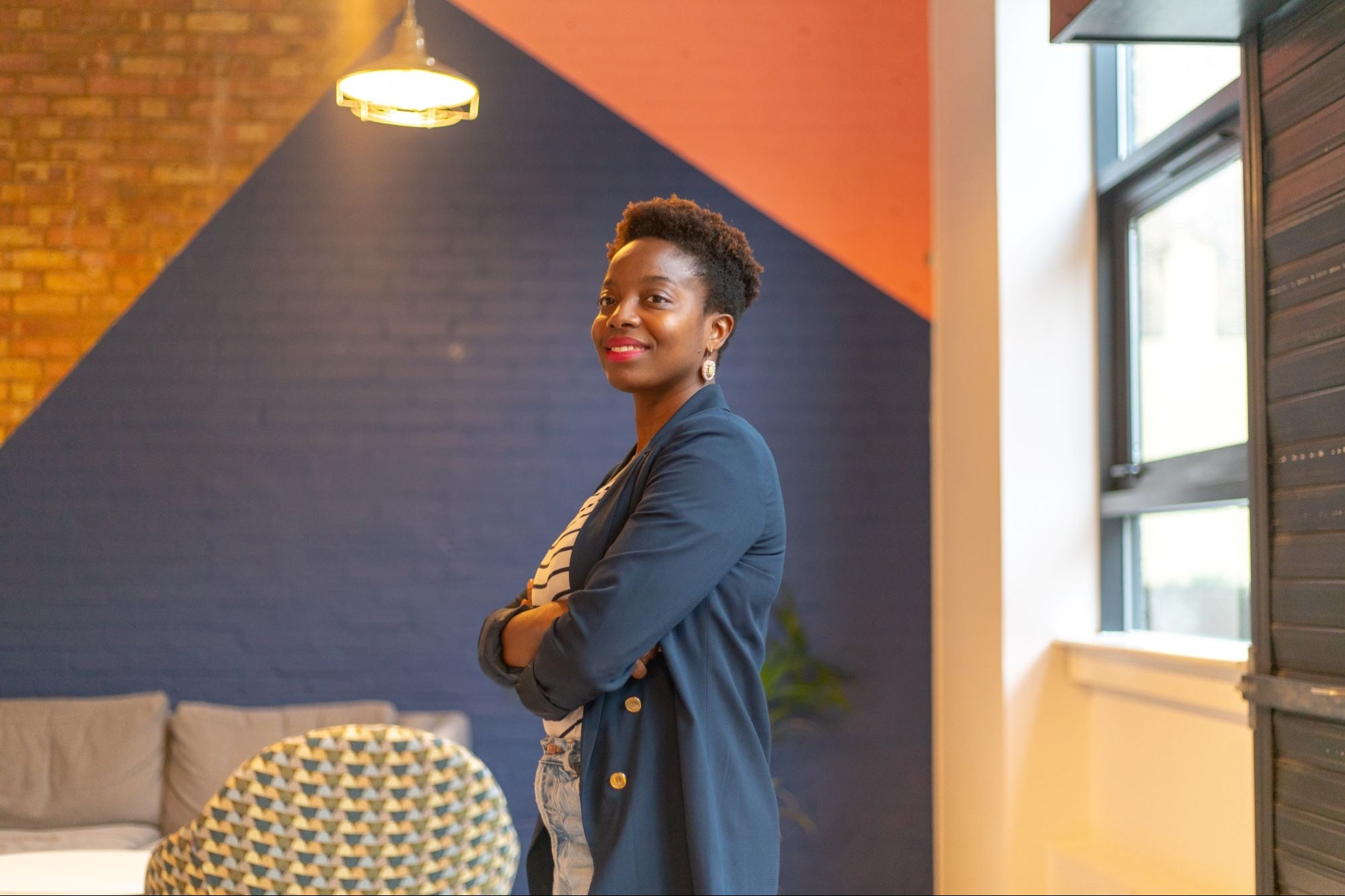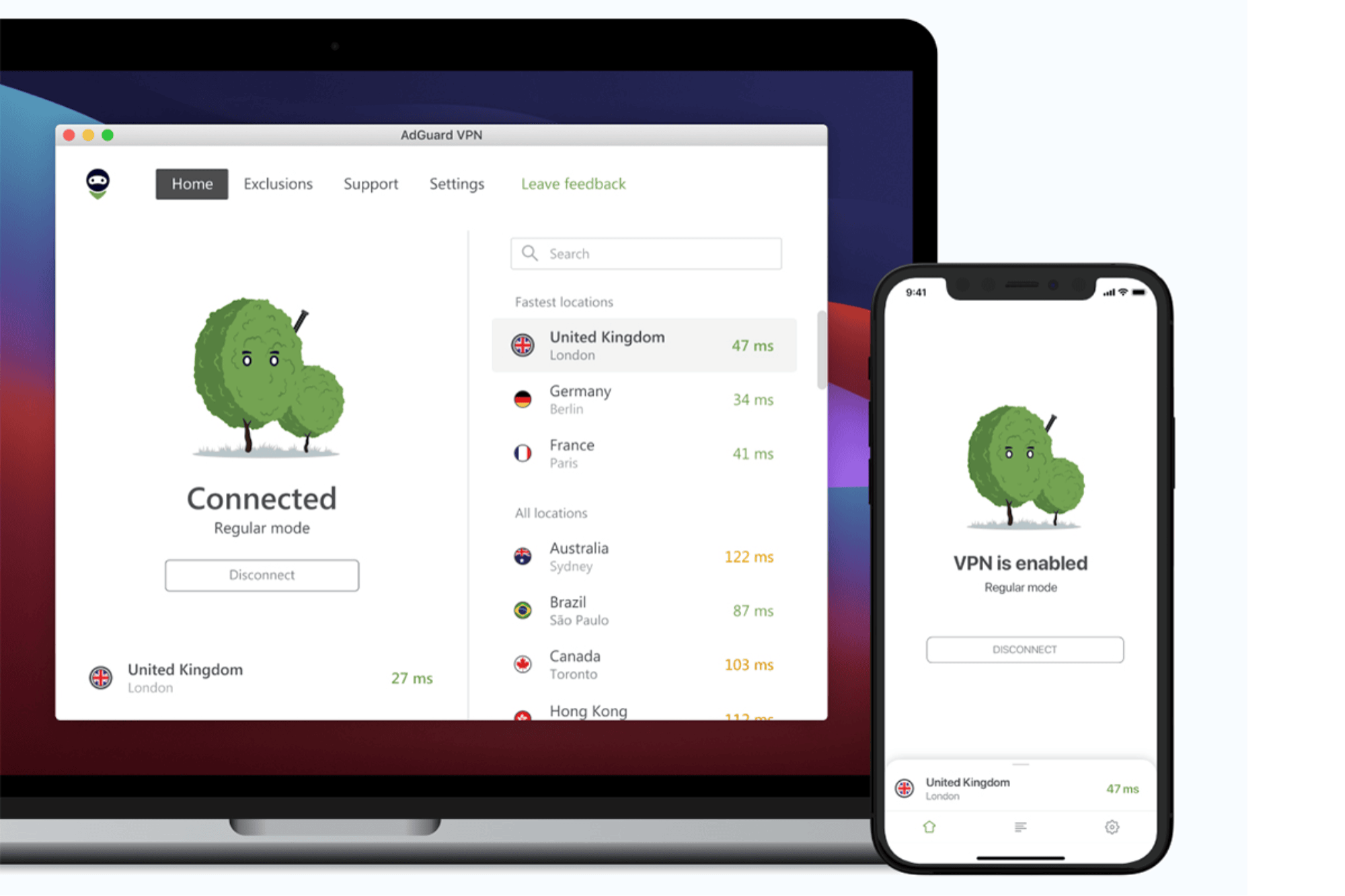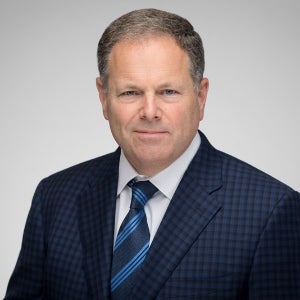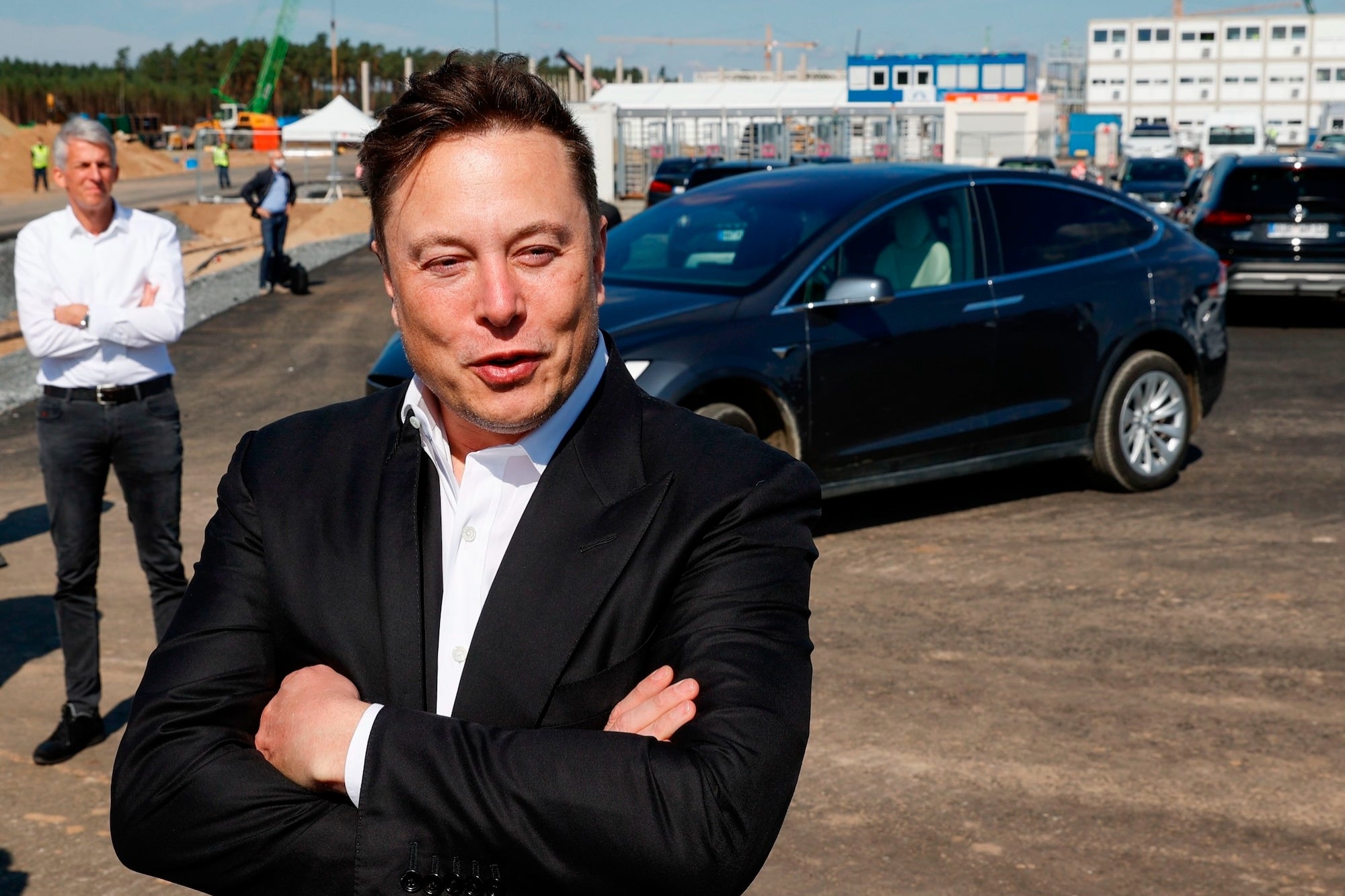Why Solving the Problem Should Be Your First Love Emma Obanye grew up watching survival-driven hustle in Hackney, long before entrepreneurship was a buzzword. Today, the OneTech founder is reshaping what inclusive innovation really looks like - and why wellbeing, identity and capital-efficient growth matter more than ever.
Opinions expressed by Entrepreneur contributors are their own.
You're reading Entrepreneur United Kingdom, an international franchise of Entrepreneur Media.

Emma Obanye didn't grow up dreaming of launching a start-up. She grew up watching her family survive - and hustle - in Hackney, when "living in Hackney wasn't cool." Back then, entrepreneurship wasn't a TED Talk topic. It was what you did when you had no other choice. "I watched my mum, aunt and sister dealing with necessity entrepreneurship, from a low-income background," she says. "Now entrepreneurship is a badge of honour. Back then it was more a case of how do I survive? My sister took it to another level - she used it as a path to freedom."
That early exposure - not just to business, but to a mindset built on resilience - would lay the foundations for a very different kind of career. Today, Obanye is founder and CEO of OneTech, a programme building equity in the start-up ecosystem by supporting underrepresented entrepreneurs with coaching, funding access and practical support. But before that came a heady rise, a hard exit, and a sharp education in what she calls the "non-negotiables" of founding: purpose, wellbeing, and identity. "I studied engineering and taught myself how to build products. I co-founded BuddyBounce with Julia Pew, and we sold it to Crowdmix in 2016 - a wild ride and a major milestone. But the aftermath was tough, especially when Crowdmix went into administration. That experience taught me a lot."
That aftermath turned out to be the pivot point. It gave Obanye a new lens on the cost of success - and a new set of rules for how to build things better. "It taught me that identity, wellbeing and purpose matter as much as product-market fit. They were non-negotiable from then and those lessons really pushed me towards inclusive entrepreneurship." The shift from surviving founder to ecosystem builder began with another turning point - this time, not personal, but collective. "Around the Grenfell time I aligned that to a purpose- seeing that happening - I felt in resonance with people who had lost their homes. It really drove me. Soon after I met with Alison Partridge and we went on to co-found OneTech."
Filling the gaps
Launched in 2018, OneTech was created to support founders from communities historically excluded from the tech ecosystem. But the model isn't just about "opening doors." It's about rethinking how we judge what makes a founder worth backing. "Inclusive entrepreneurship is building an ecosystem where talent and ambition - not your background or network - determine what outcomes you see." The timing couldn't be more urgent. The capital landscape has cooled, and while unicorn headlines still dominate, many early-stage founders are navigating a harsher reality. "Capital is much more concentrated. Deal volumes have cooled - as a founder you need capital-efficient growth, credible revenue path far earlier. AI makes starting easier but it is also easier to copy."
OneTech's response? Strip it back to what matters. Two flagship programmes - Funding School and Bootstrap School - are designed to help founders understand and access the right kind of funding at the right time. "Today, your marketing and go-to-market is much more important. We help with traction - it beats theory all day long." A lot of money that was once focused on DEI has been scaled back but society's needs haven't changed. At a time when many companies are quietly walking back their diversity pledges, OneTech is doing the opposite. "We are keeping our doors open."
Start-up life = real life
Obanye speaks with the insight of someone who has done the work - not just as a founder, but as a person. Her advice is sharp and unsentimental. "Having done this several times, choosing the right problem is vital. Fall in love with the problem - that helps to keep you adaptable. It's really akin to life - the resilience you build up no matter what. It's a much healthier place to be in." Mental health is another pillar - not as a perk, but as part of the founder's actual job. "Helping my mental health - therapy and fast feedback loops - not burying things - helped me to rebuild. Honesty is important to teach founders - a discipline, a microcosm of life." And she stresses the value of building not just companies, but communities - from the very start. "Third, building community early - not just for your product, but your network. OneTech was built [with] all stakeholders and operators in the same room. That intentionality was vital."
It's never been easier to start a start-up - but equally, it's never been easier to copy one. For all its challenges, today's start-up scene is both more accessible and more ruthless than it was a decade ago. The barriers to entry are lower. So are the moats. "Being AI-native and distribution-obsessed - progress comes through your brand, your partnerships and your sales and marketing. It's never been easier to start - but also it's never been easier to be copied." That means founders have to move differently. You can't just build; you have to validate. "It's about being capital-efficient, validating customers, and raising to accelerate." And you have to stay upright - because burnouts don't scale. "Look after yourself and the team. Founder resilience - it's a core metric. We are going to see more founder care and it's vital. Burnout kills great companies."
What ambition looks like now
Obanye draws a clear distinction between founders aiming to build a solid business and those striving to lead a category. Both paths are valid, but the mindset differs. "I normally class ambitious founders as the ones that have the goal of being category winners." Outside of high-demand sectors like AI and life sciences, she explains, capital moves slower and expectations rise. That doesn't mean there's no path - just that it demands sharper focus. "Expect slower rounds outside of deep tech, AI, life sciences." For those watching the broader ecosystem, Obanye sees opportunity everywhere - especially in the overlaps. "Opportunities come together where AI meets finance, health, climate, public services etc." And perhaps more surprisingly - outside the capital city. "Not just London - the regional ecosystems are maturing and investing, especially where there are hubs and strong public-private partnerships. Founders are exploring opportunities beyond London."
Making the future work for more people
What Obanye offers, ultimately, is a version of start-up life that doesn't require you to be rich, white, Oxbridge-trained, or backed by mates from VCs. OneTech was built to be the kind of place where people like her - and her family - would have had a shot. This is more than a business mission; it's a powerful response to the realities of the ecosystem, paving the way for a more inclusive and equitable future. Entrepreneurship may have become fashionable - a badge of honour, as Obanye puts it - but for many, it remains a vital survival tool. Her career is a reminder that both can be true, and that the industry is at its best when it stays connected to its roots. Obanye's work poses a bigger question: what if survival wasn't the baseline? What if we built something better?












